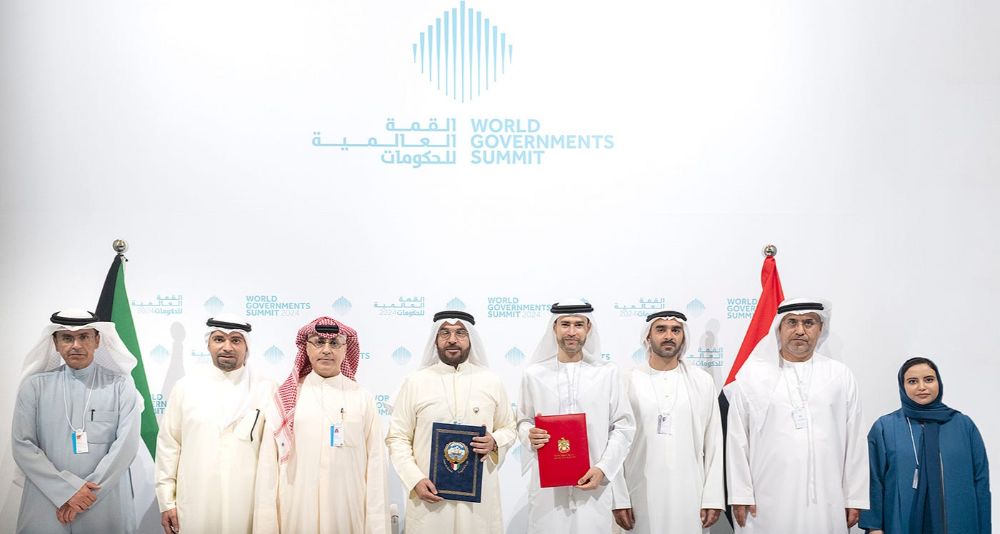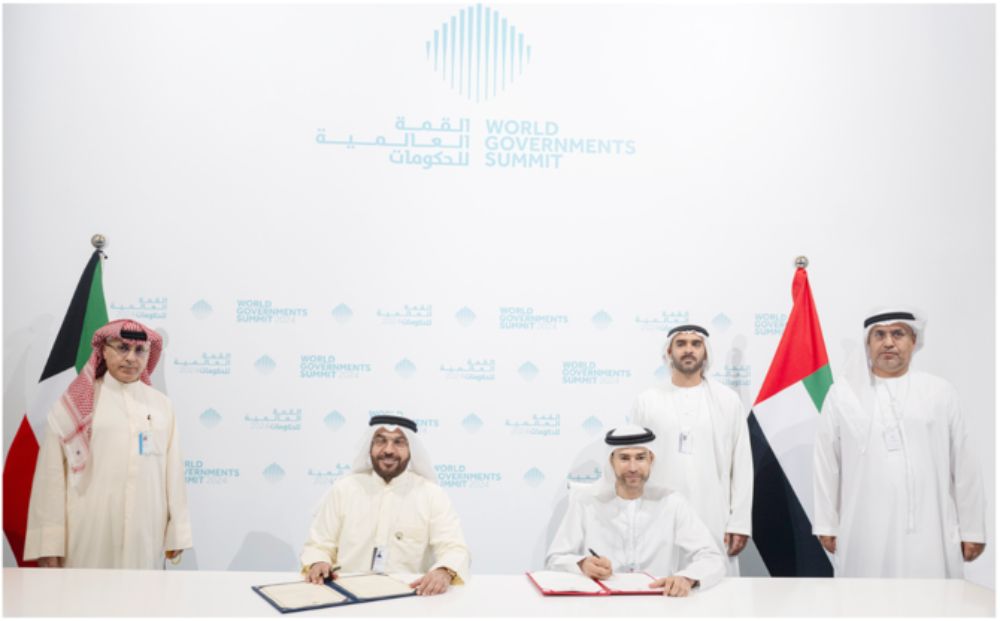Kuwait and the United Arab Emirates (UAE) have signed an agreement to eliminate double taxation on income and curb tax evasion for enhancing economic cooperation and fostering financial integration. The landmark deal was formalized during the 8th Arab Fiscal Forum, held on the eve of the World Government Summit 2024, signaling a pivotal step towards strengthening economic ties between the two nations, as reported by the Kuwait News Agency.

The agreement was inked by Kuwaiti Finance Minister Anwar Al-Mudhaf and his UAE counterpart, Mohamed Hussaini, in the presence of representatives from the International Monetary Fund (IMF) who monitored the talks. Al-Mudhaf, speaking to the Emirates News Agency (WAM), highlighted the agreement’s role in facilitating the free movement of capital between Kuwait and the UAE, underscoring its contribution to broader regional economic unification efforts.
The participation of over 25 heads of state, 140 government delegations, and more than 85 international and regional bodies in the World Government Summit reflects the UAE’s international stature and its significant economic and political influence, as noted by Al-Mudhaf. He emphasized Kuwait’s deep-rooted strategic relations with the UAE and the strategic significance of the summit as a platform for discussing future prospects and global challenges.

This agreement, which represents Kuwait’s first such deal with a Gulf Cooperation Council (GCC) member state, marks a milestone in regional economic diplomacy. It builds upon groundwork laid out in collaboration between Kuwait and the UAE, as highlighted in a report by Deloitte in August 2022. The treaty aims to bolster investment prospects, stimulate trade activities, and support the development objectives of both nations by diversifying income sources and ensuring comprehensive protection of goods and services.
The income and capital tax deal between Saudi Arabia and the UAE, which entered into force in April 2019, serves as a precedent for such agreements in the region. Originally signed in May 2018, it was the first of its kind between the two countries, setting a positive precedent for economic cooperation and taxation in the Gulf region.
